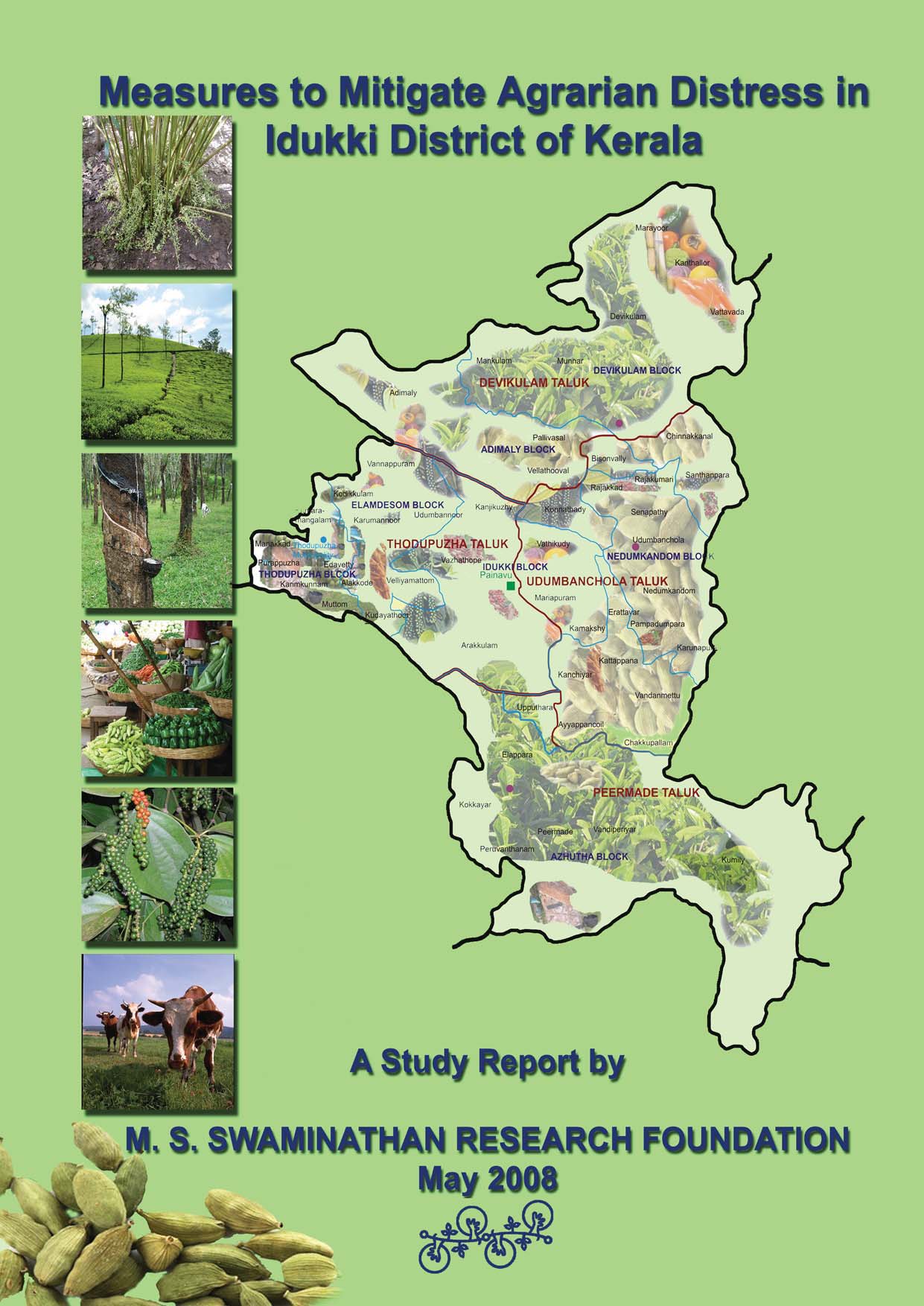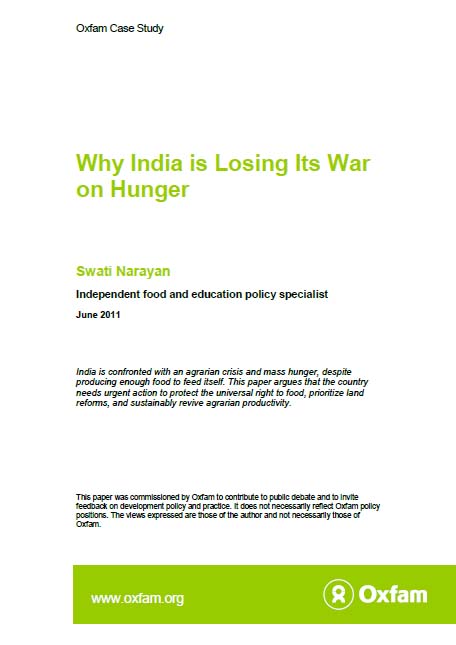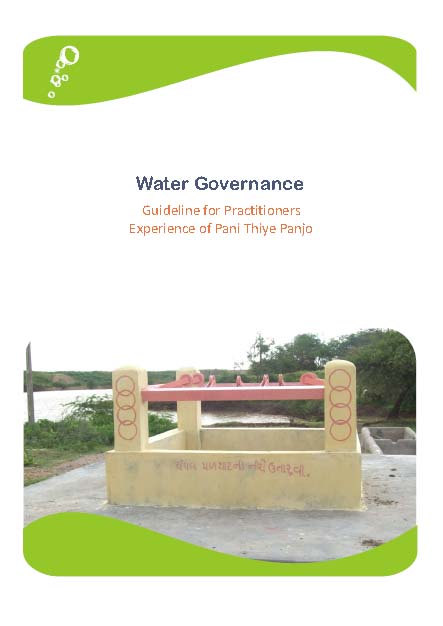/topics/equity
Equity
Kailash sacred landscape conservation initiative - Feasibility assessment report by ICIMOD
Posted on 25 Jul, 2011 03:19 PM This publication by International Centre for Integrated Mountain Development (ICIMOD) deals with Kailash Sacred Landscape Conservation Initiative (KSLCI), a project that seeks to conserve and sustainably manage a highly unique and special landscape through the application of trans-boundary ecosystem management approaches.
This publication by International Centre for Integrated Mountain Development (ICIMOD) deals with Kailash Sacred Landscape Conservation Initiative (KSLCI), a project that seeks to conserve and sustainably manage a highly unique and special landscape through the application of trans-boundary ecosystem management approaches.
This region, like much of the rest of the Hindu Kush-Himalayas, faces many challenges, not the least of which are global warming, globalisation and environmental degradation. The Kailash region is considered sacred to five major religions and to a large number of people in Asia and throughout the world. This area is historically, ecologically, and culturally interconnected and is the source of four of Asia’s most important rivers.
The KSLCI is an attempt on the part of the three neighbouring countries of India, China and Nepal to join hands to help preserve the unique biological diversity, the many ecosystem goods and services, and the value-based cultural heritage of one of the most revered and sacred landscapes in the world.
Fazilka citizens protest against planned encroachment on ecosensitive Badha lake wetland by Punjab Urban Development Authority (PUDA)
Posted on 21 Jul, 2011 04:16 PMForwarded to the portal by: Graduates Welfare Association, Fazilka
Measures to mitigate agrarian distress in Idukki district of Kerala : A study report by MSSRF
Posted on 10 Jul, 2011 07:38 PM Although Idukki is generally perceived as a ‘spices district’ and a ‘plantation crop district’, about 95 per cent of the farmers here are small with tribal farmers constituting a substantial component. Public investment in agriculture in this district is very poor and this hampers agricultural progress and rural livelihoods in many ways.
Although Idukki is generally perceived as a ‘spices district’ and a ‘plantation crop district’, about 95 per cent of the farmers here are small with tribal farmers constituting a substantial component. Public investment in agriculture in this district is very poor and this hampers agricultural progress and rural livelihoods in many ways.
As a result of high cost of production of major crops and its volatile prices, small farmers who constitute the majority of the farming population have accumulated debt burden exceeding 700 crores. More than eighty per cent of this debt is due to crop loans to small and marginal farmers.
The recommendations in this report are made after giving due consideration to ongoing programmes and resources being made available thereof. These are mainly focused on the small, marginal and tribal farmers and other economically disadvantaged sections. The stress is on sustainability of agricultural production systems and strengthening the regional ecology.
Conflicts and dilemma of human right to water - A Current Science paper by J Harsha
Posted on 05 Jul, 2011 04:30 PM
Download the below attachment to read the entire article:
Why India is losing its war on hunger – A case study by Oxfam
Posted on 29 Jun, 2011 08:50 AM The paper argues that the country needs urgent action to protect the universal right to food, prioritize land reforms, and sustainably revive agrarian productivity.
The paper argues that the country needs urgent action to protect the universal right to food, prioritize land reforms, and sustainably revive agrarian productivity.
India is home to a quarter of the world’s hungry people. Since the green revolution, the country has produced enough to feed itself, but it has not yet been able to wipe out mass hunger, which haunts the landscape of the countryside and lurks in the narrow alleys of urban slums.
Currently, 40 per cent of the population is malnourished – a decrease of only 10 per cent over the past three decades. Poor families, who spend more than 60 per cent of their incomes on food, are increasingly struggling to stretch their meagre household budgets. Unfortunately, small farmers have not benefited from high retail prices either, as they usually receive far less for their produce. In fact in the past 15 years, in an unprecedented wave, a quarter of a million farmers crippled by debt have chosen to commit suicide.
Centrally sponsored schemes ARWSP and TSC have not done enough to ensure right to water and basic sanitation : Article from Combat Law
Posted on 28 Jun, 2011 04:59 PMThe Universal Declaration of Human Rights (1948) recognises the inherent dignity and the equal and inalienable rights of all human beings. There are certain basic needs that are essential for a dignified life. Water and sanitation are two of these essential human needs and a clean environment is also increasingly recognised as a fundamental human right.
Intensive farming responsible for farmer suicides - Interview with Devinder Sharma with special focus on Odisha
Posted on 27 Jun, 2011 11:54 AM
Q: Odisha is not much known for farmers' suicide the way we hear it in Vidarbha, Andhra Pradesh etc. But of late such cases are being reported in the media. What's the reason?
A: When you look at the issue of farmers' suicide, it's an indication of the crisis that exists in the agriculture sector. This is linked to monoculture and intensive or industrial farming model that have been implemented in the country. Vidharbha for instance has been in the news on the issue of farmers' suicide mainly because there is one NGO namely Vidharbha Jan Andolan Samiti which regularly compiles the figures of farmers suicide and feeds to the media. Unfortunately there are no such NGOs elsewhere to do a similar job. So therefore we do not get the real picture of farmers distress in other areas where conditions are equally bad. If suppose this NGO also stops compiling suicide figures, our impression about Vidharbha as a suicide belt of India will also disappear. In other words, not only in Vidharbha, agriculture across the country is in a terrible crisis.
Forget Prometheus and remember Bhagiratha: Wrong and right thinking about rivers ' - Shri Ramaswamy Iyer s lecture at School of Environmental Sciences, Jawaharlal Nehru University (June 2011)
Posted on 22 Jun, 2011 09:55 AM“Current economic philosophy exalts consumption and growth. If we are hypnotised by visions of 8% or 10% growth, we are bound to ‘demand’ more and more and still more water; and either government engineers or private companies and their engineers will come up with supply-side answers in the form of large projects which will cause even greater distress to the rivers”.
Tehri Dam across Ganga
Source: haridwar.nic.in/ gangaji.htm
I am very grateful to Prof. Sudha Bhattacharya for having invited me to this Seminar. I was not sure whether what I have to say would fit in well with the theme of this Seminar, but she persuaded me to say yes, and so here I am.
Water governance guidelines for practitioners - Sahjeevan's experiences in decentralised drinking water management
Posted on 20 Jun, 2011 08:50 PM This report is based on the experience of women’s collectives promoted by Sahjeevan and of several member organizations of Abhiyan on local water governance, in particular on the demonstrated models of decentralized drinking water that they have taken up in several villages.
This report is based on the experience of women’s collectives promoted by Sahjeevan and of several member organizations of Abhiyan on local water governance, in particular on the demonstrated models of decentralized drinking water that they have taken up in several villages.
Water has been the central theme for development in Kutch. In the last two decades, a scaling up process of decentralized drinking water, popularly known as Pani Thiye Panjo, has been initiated in around hundred villages of Abdasa taluka in Kutch district of Gujarat focusing on development of local drinking water sources, their strengthening and building capacities of communities for maintenance and management of the systems to develop drinking water security at the village level.
The concept of Pani Thiye Panjo, has been well accepted as Abdasa model, which besides providing drinking water security, initiated policy dialogues at the local level on issues such as protection of groundwater, pricing mechanism of water (local vis-à-vis external sources), role of Panchayati Raj Institutions in water governance, role of local youth in developing their technical capacities and development of social capital in management of drinking water systems.
"Battles over land" - Land as commodity and land for livelihoods - Special issue from Infochange
Posted on 18 Jun, 2011 12:48 AMWhat are the laws governing acquisition? What is the social impact of a development-at-all-costs policy? Can those who owned and lived off the land have a stake in its development?




